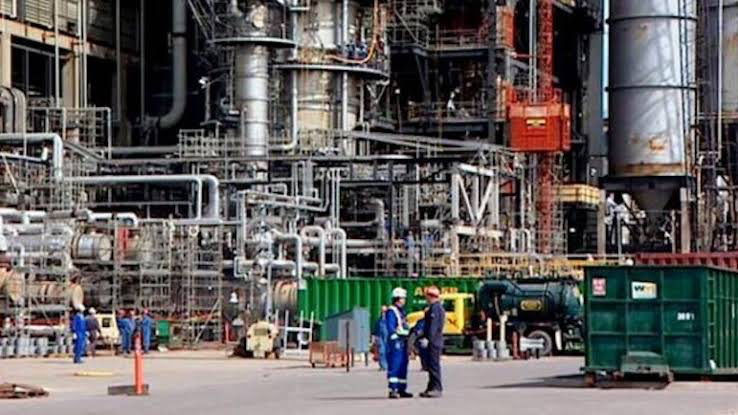KEY POINTS
- NNPC’s naira-based crude oil plan struggles due to supply shortages.
- Dangote refinery is forced to source international crude.
- Domestic refineries lack consistent crude allocations, highlighting systemic inefficiencies.
Nigeria’s ambitious plan to price crude oil in naira for local refineries is facing major challenges just months after its introduction.
Launched by the Nigerian National Petroleum Company (NNPC), the initiative aims to bolster dollar reserves and guarantee a steady supply of crude for domestic refining. However, it has struggled to gain traction, with both supply shortages and operational hurdles undermining its goals.
Dangote refinery struggles with domestic crude shortfall
According to a recent report posted by Oilprice, the Dangote Oil Refinery, a flagship project and Africa’s largest refinery, has been particularly affected. NNPC had committed to delivering 385,000 barrels per day (bpd) to the 650,000-bpd facility, but actual deliveries have fallen far short.
Edwin Devakumar, Dangote refinery’s executive director, described the allocations as “peanuts,” citing the unreliability of Nigeria’s domestic crude supply chains. The shortfall has forced the refinery to seek alternatives, including a recent purchase of 2 million barrels of U.S. WTI Midland crude.
Nigeria’s local oil program faces widespread exclusion
Other members of the Crude Oil Refinery-owners Association of Nigeria (CORAN) report being completely left out of the naira-based crude oil program. CORAN members are still in negotiations with the government, further highlighting the program’s operational inefficiencies.
The setbacks expose deeper systemic issues in Nigeria’s oil sector. Chronic oil theft and pipeline vandalism have long plagued the industry, diminishing crude availability. Critics argue that NNPC’s focus on exports has left domestic refineries at a disadvantage, undermining the government’s push for energy self-sufficiency. Attempts by the Nigerian Upstream Petroleum Regulatory Commission to enforce local supply rules have so far been ineffective.
Nigeria’s refining vision hindered by supply shortfall
As the Dangote refinery nears its target of 85 percent operational capacity by year-end, the crude supply shortfall could derail Nigeria’s vision of a self-sufficient refining industry. The refinery’s reliance on international crude supplies underscores the inadequacy of local infrastructure and policy implementation.
The faltering naira-based crude oil initiative reflects broader inefficiencies in Nigeria’s oil sector. Without consistent crude allocation and stronger enforcement mechanisms, the country risks falling short of its ambition to create a stable, self-reliant refining ecosystem. For now, Nigeria’s vision of leveraging local currency for crude oil transactions remains a distant goal.



